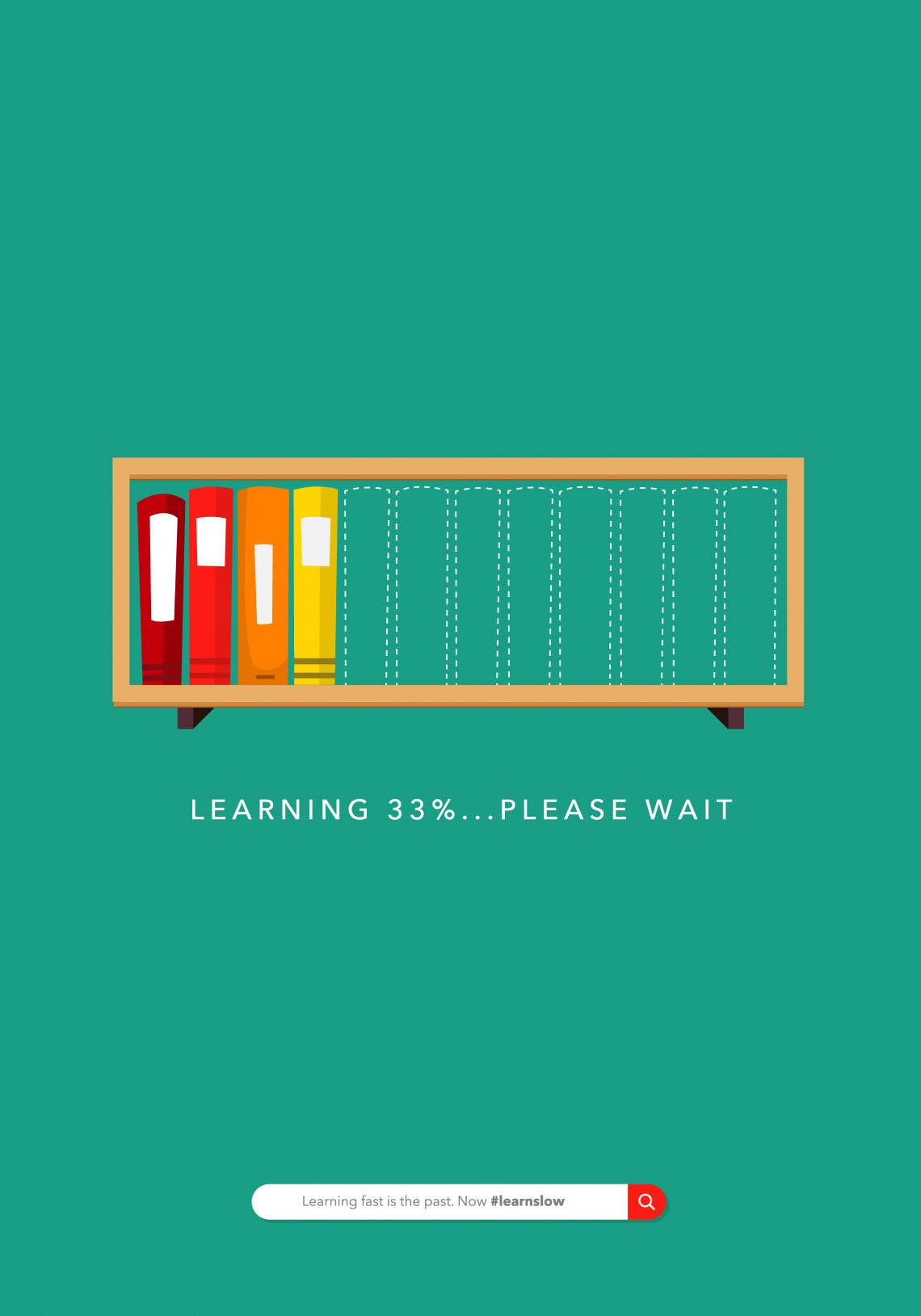You Can't Rush Wisdom: Embracing Slow Growth in a Fast-Paced World
Despite modern pressures to "hack" our way to success, true learning takes time. Experience and reflection are key ingredients in mastering anything and cannot be bypassed to speed the learning curve.
You’re reading Galloquium, an extended meditation on creating meaning and achieving mastery in life.
In an age where "move fast and break things" has become a mantra for success, we must ask: What are we breaking in our relentless pursuit of speed? The pressure for quick results has infiltrated every aspect of life, from how we work and learn to how we think about success and self-improvement. But in prioritizing speed, are we sacrificing something far more important? The deeper, slower processes essential for personal growth—reflection, patience, and wisdom—are being overshadowed by the modern demand for instant gratification. The societal insistence that faster is better, that efficiency is synonymous with success, is turning the quest for self-mastery into a race, one that leaves us burnt out and dissatisfied.
Roger L. Kneebone, in his book Expert: Understanding the Path to Mastery, offers a simple yet profound observation: you can’t bake a cake in half the time by putting it in the oven at twice the temperature. You’ll only end up with a burnt mess. This metaphor speaks volumes about life itself. Rushing through essential experiences doesn't make us wiser or more accomplished—it leaves us with a hollow and fragmented version of what could have been a rich, well-rounded life. The same forces that compelled our imaginary cook to rush through a recipe—impatience, external pressure, the desire for quick results—are at work in our broader lives, demanding that we shortcut our way to success.
The Illusion of Quick Fixes
In a similar observation, Warren Buffett put it succinctly: “No matter how great the talent or effort, some things just take time: you can’t produce a baby in one month by getting nine women pregnant.” While humorous, this captures an undeniable truth: some processes cannot be rushed. They require patience, care, and time to unfold properly. Yet the modern ethos suggests otherwise, implying that with the right tools, hacks, or optimizations, we can somehow bypass the slow path to growth. But just as we can rush neither baking nor biology, we cannot rush the development of self-mastery or wisdom.
The philosopher Alain de Botton echoes this sentiment in The Consolations of Philosophy, writing, “The good life is not a sprint to the finish line but a gradual refinement of one's beliefs and actions through sustained reflection and repeated failure.” True personal growth requires not just the willingness to fail but the time to reflect and learn from that failure. The relentless push for efficiency, speed, and perfection denies us this opportunity to reflect and evolve. Instead of letting our beliefs and actions simmer and refine over time, we are pressured to perform, to produce, and to succeed at every moment.
The “Burnt Mess” of a Fast Life
Kneebone’s metaphor of the burnt cake serves as a powerful symbol for the "burnt mess" of life that results from rushing through essential experiences. In our pursuit of efficiency, we have created a culture where speed is worshiped and slowness is scorned. We measure success in terms of how quickly we can accomplish tasks, how fast we can grow our careers, and how rapidly we can accumulate achievements. The result? A society of individuals who are constantly "on," yet disconnected from the very processes that make life meaningful.
This is particularly evident in how we approach learning and mastery. Malcolm Gladwell popularized the "10,000-hour rule" in his book Outliers, arguing that true expertise in any field comes after thousands of hours of deliberate practice. Yet, in a world obsessed with shortcuts and life hacks, even the concept of deliberate practice is under attack. The pressure to "hack" our way to success, to speed up the learning curve, has created a toxic environment where we prioritize superficial accomplishments over deep, meaningful progress.
The Toxins of Speed
Kneebone refers to these societal pressures for speed and efficiency as "toxins" that corrupt the natural, slow processes required for true mastery. They seep into every aspect of life, distorting our perception of what it means to grow and learn. The irony is that while speed may help us accomplish more in the short term, it often leads to burnout, disillusionment, and a lack of fulfillment over the long term. By focusing inordinately on efficiency, we risk losing the very qualities that make us human—our capacity for reflection, empathy, and sustained effort.
The writer and philosopher Simone Weil understood the value of slowness. In her book Gravity and Grace, she writes, “The slower we go, the more time we have to experience the fullness of life.” Weil’s insight reveals a paradox at the heart of modern life: by rushing through our days, we actually experience less, not more. The slower we move, the more we can observe, reflect, and engage deeply with the world around us.
It is no coincidence that some of the world’s greatest thinkers and creators—from Michelangelo to Virginia Woolf—have embraced slowness as an essential part of their creative process. Michelangelo, who spent four years painting the ceiling of the Sistine Chapel, famously said, “If people knew how hard I had to work to gain my mastery, it wouldn’t seem so wonderful at all.” His words remind us that the pursuit of mastery, in any field, is not about talent alone. It is about time—time spent working, reflecting, and growing.
Learning Slowly, Living Fully
Mastery, whether in life or in a craft, is a long, nonlinear process. Tim Ingold, an anthropologist whose work explores human craftsmanship, argues that to truly know something, we must engage with it slowly and deliberately. This idea runs counter to the modern expectation that knowledge can be downloaded, skills can be hacked, and growth can be optimized. True understanding comes from immersion—allowing yourself to grapple with complexity, to fail repeatedly, and to emerge on the other side wiser and more capable.
Kneebone writes:
“The drive to become expert – to become as good as we can be, at whatever we’ve chosen to do – is something we all share. It is not about external markers of success, such as moving up the career ladder or becoming more marketable... It’s an internal, ontological process; a shift in the nature of who you are, not just what you can do. It’s a commitment to developing your own potential as a person, to pushing your limits. It transcends short-term goals and waypoints. Running counter to contemporary pressures to show quick results, it requires decades of commitment and effort – perhaps a lifetime – and there are no shortcuts.”
In contrast, modern life pushes us toward becoming "achievement subjects"—as philosopher Byung-Chul Han describes in The Burnout Society—who are perpetually striving for more without finding fulfillment. This constant striving erodes our ability to savor the learning process, to immerse ourselves in the gradual accumulation of knowledge and wisdom. By rushing through the stages of growth, we may achieve success in the eyes of others, but internally, we are left hollow, disconnected from the deeper meaning of our experiences.
Rejecting the Sprint Mentality
So how do we resist the pressure for speed in a world that values quick results? It requires a deliberate shift in mindset. We must, as Alain de Botton suggests, embrace the gradual refinement of our beliefs and actions through sustained reflection and failure. We must reject the allure of quick fixes in favor of a slower, more thoughtful approach to life.
This shift begins with redefining success—not as a sprint to the finish line but as a journey of slow, deliberate growth. It involves cultivating patience, both with ourselves and with the world around us. It requires that we resist the toxins of speed and efficiency, choosing instead to immerse ourselves fully in the process of becoming.
The Stoic philosopher Seneca observed, “Life is long if you know how to use it.” His words are a reminder that time itself is not the enemy. What matters is how we use the time we have—and, crucially, whether we allow ourselves the space to use it well. Rushing through life in pursuit of external markers of success—whether it’s a promotion, a publication, or a personal milestone—misses the point entirely. Life, as Seneca understood, is not about speed but about the cultivation of inner virtues: patience, wisdom, and resilience. Rather than rushing from one achievement to the next, we must allow ourselves to slow down, to engage deeply with our work, and to savor the process of growth.
The Case for Slow Growth
The pressure for speed may be ubiquitous, but it is not inevitable. We have the power to choose a different path—one that values slow, deliberate growth over quick fixes and superficial success. The good life, like a well-baked cake, requires patience, care, and time to develop its full richness.
The slow path is not easy, but it is the only path that leads to true mastery and fulfillment. By embracing slowness, we reclaim not only our time but also the deeper processes of growth that make life meaningful. In a world obsessed with speed, the decision to slow down is a radical act of self-mastery, one that leads not to a burnt mess but to a life well-lived—a life in which we become not just more efficient but more thoughtful, more skilled, and ultimately more human.
By choosing slowness, we step off the hamster wheel of constant productivity and immerse ourselves in the rich, reflective experiences that cultivate wisdom. We remember that mastery, fulfillment, and the good life itself are not goals to be achieved in haste, but journeys to be savored. The philosopher Epictetus once said, "No great thing is created suddenly, any more than a bunch of grapes or a fig. If you tell me that you desire a fig, I answer that there must be time. Let it first blossom, then bear fruit, then ripen."
Let us learn to let life ripen in its own time.
Thank you for reading. If you enjoyed this essay, please consider sharing it.
References and Further Reading
The cake metaphor and quotation about becoming expert are from Expert: Understanding the Path to Mastery (2021) by Roger L. Kneebone. This book discusses the nature of expertise and the necessity of patience and slow learning in the path to mastery.
Buffett’s quote is from his 1985 letter to Berkshire Hathaway shareholders.
The quote about the good life is taken from Alain de Botton’s book The Consolations of Philosophy (2000). In this book, de Botton explores the wisdom of ancient philosophers in modern life.
Weil's reflection on attention and patience was recorded in Gravity and Grace (1952), a collection of her philosophical and spiritual writings.
The idea of spending deliberate time with something in order to truly know it is a recurrent theme in Ingold's work. This essay was inspired in particular by Knowing from the Inside, which can be found in the 2013 collection Making: Anthropology, Archaeology, Art and Architecture.
The concept of "achievement subjects" comes from Byung-Chul Han’s The Burnout Society (2015). Han critiques the pressure in modern society to be constantly productive, leading to burnout and exhaustion.
The quote, “Life is long if you know how to use it,” is from Seneca’s essay On the Shortness of Life, written around AD 49. It reflects on the value of time and the importance of using it wisely.
The fig metaphor comes from Discourses of Epictetus, a collection of teachings attributed to the Stoic philosopher Epictetus.





